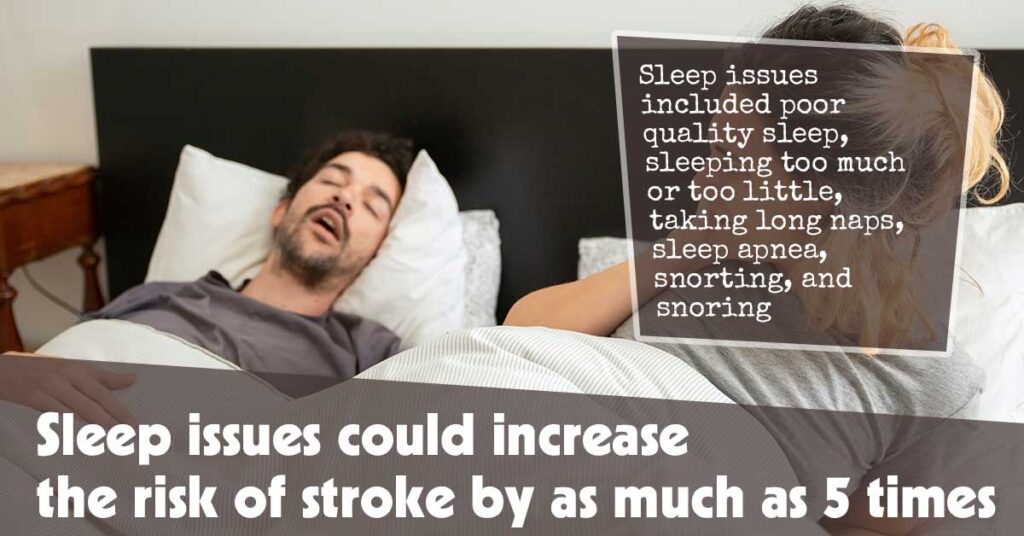According to research, individuals with sleep issues could have an increased risk of stroke. Sleep issues included poor quality restorative rest, sleeping too little or too much, taking long naps during the daytime and/or at night time, sleep apnea, snorting, and snoring as potential contributors to having a stroke.
Individuals with five or more of these issues had an increased stroke risk; this study only indicates a correlation between sleep issues and stroke, not that sleeping issues cause it.
Not only did these results indicate that individual sleep issues could increase one’s stroke risk, but having five or more symptoms at one time increased it to five times greater risk than individuals without any issues at all. Thus, sleep issues must become an area of focus for preventing stroke.
This study included 4,4996 individuals, of which 2,243 had experienced a stroke compared to 2,253 who hadn’t. On average, they were aged 62 years.
They responded to questions regarding their sleep behaviors such as quality, duration, breathing issues while sleeping, napping, snoring and snorting.
Sleep duration and quality were found to increase risk for stroke. A total of 162 individuals who experienced a stroke received less than 5 hours of sleep per night compared to 43 who didn’t, while 151 who did experience one got over 9 hours per night compared with only 84 non-stroke sufferers.
Sleep experts found that those sleeping less than 5 hours had three times higher risks for having a stroke compared to those sleeping an average of 7 hours per night, while individuals who slept longer than 9 hours at a stretch had two times increased risks compared to individuals sleeping 7 hours each night.
Individuals who napped longer than an hour were 88% more likely to experience a stroke compared to individuals who didn’t nap as frequently.
Breathing issues during sleep were also examined, including snoring, sleep apnea and snorting. Snoring increased risk by 91% relative to non-snorers while snorting increased it even more; individuals who snorted had almost three times higher risk. Finally, those with sleep apnea also increased risk by almost threefold relative to non-affected peers.
Results remained comparable even after accounting for other potential risk factors that might have contributed to stroke, such as alcohol consumption, smoking, depression and physical activity.
One limitation of this study was that individuals reported their sleep issue symptoms through self-reporting; thus not all information provided may have been reliable.




